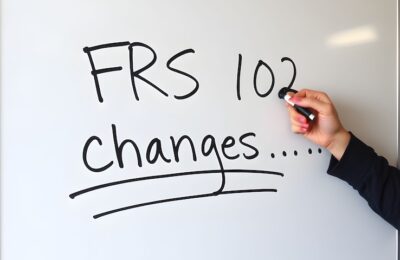Recently, we shows you how buying an electric car via your company allows you to offset the full cost of the vehicle against tax. In this second instalment, we’re going to take a look at the tax implications of leasing electric cars.
Leasing electric cars and tax
Many limited companies choose to lease vehicles via an ‘operating lease’. This means that they rent a vehicle from a leasing company for an agreed period (typically 2 – 3 years). At the end of this time, the vehicle is returned to the leasing company.
The big advantage of leasing an electric or hybrid car with emissions of 50g/km or below is that the full monthly rental payments are deductible expenses. In other words, they can be set against profits, leading to a lower corporation tax bill.
(It’s also worth noting that if you leased a car before April 2021, you can offset 100% of the rental payments if its emissions are below 110g/km).
Here’s an example of the tax savings you can make by leasing:
You lease an electric car for £6,000 over the 2024-25 financial year. You deduct the cost against profits. As corporation tax is 19%, then your tax savings are calculated as 19% x £6,000 = £1,140.
Other benefits to leasing include not having to worry about depreciation, fixed assets and capital allowances. Your lease payments are simply a deductible operating cost.
Leasing electric cars and VAT
If you lease an electric car, you also stand to make VAT savings. In theory, if the car is not available for any personal use, you can reclaim 100% of the VAT charged on the monthly leasing cost. However, because it is extremely difficult to prove that a car hasn’t been used in a personal capacity, you may run into problems with HMRC if you try to claim back all of the VAT.
On the plus side, if a leased electric car is used for company and personal reasons, you can still claim back 50% of the VAT. This is something you can’t do if your company buys the car (with a few exceptions, such as taxi or driving instructor businesses).
Leasing electric cars and benefits in kind (BIK)
If an employee or director of the company has personal use of a company car, then it counts as a benefit in kind (BIK).
The way this is calculated is exactly the same as if the employee had use of an electric car that had been bought by the company. The table below lists some of the benefit-in-kind rate ranges that apply between 2025 and 2027. As you can see, a fully electric car only attracts a 2% benefit-in-kind rate for 2024/5 increasing by 1% for each subsequent year. This means the BIK costs over a three-year lease are both low and predictable.
| Cars registered from 6 April 2021: | ||||
| CO2 (g/km) | Electric range (miles) |
2024/25 (%) | 2025/26 (%) | 2026/27 (%) |
| 0 | N/A | 2 | 3 | 4 |
| 1-50 | >130 | 2 | 3 | 4 |
| 1-50 | 70-129 | 5 | 6 | 7 |
| 1-50 | 40-69 | 8 | 9 | 10 |
| 1-50 | 30-39 | 12 | 13 | 14 |
| 1-50 | <30 | 14 | 15 | 16 |
The BIK rate is calculated using the list price of the electric car (not the rental cost). Let’s use an example.
A director has personal access to the company’s zero-emissions electric car. The car’s list price is £40,000. The director has to declare 2% of the car’s list price as a BIK on his Self-Assessment Tax Return. This figure is £800. As a higher-rate tax payer, he needs to pay 40% income tax on the £800 BIK. So he pays £320 tax annually for the personal use of the car.
As you can see, the director can make significant savings with a zero-emissions car. If the £40,000 car was a hybrid with an electric range of under 30 miles, the BIK would be £5,600 (14% of list price). Taxed at the higher rate of 40%, this would leave him with a bill of £2,240.
Should I buy or lease an electric car?
Electric cars are a smart choice for many companies. Not only do they reduce your impact on the environment, but they can have significant tax benefits.
However, there are lots of competing pros and cons to buying or leasing vehicles. If you buy an electric vehicle, you have to accept depreciation and the fact that battery technology is improving year on year. If you lease, you can simply choose a new vehicle every two or three years. On the other hand, if you lease cars you could get stuck with mileage penalties and excess charges for damage.
Just as importantly, leasing may make more financial sense for some companies, while buying will be more effective for others. If you’re thinking of acquiring an electric car, talk to your THP account manager – we’ll be happy to advise you which route is the best fit for your business.
About Mark Ingle
Owner-manager business specialist, Mark Ingle is key to building relationships with clients at the Chelmsford office. “I like to see clients enterprises grow and succeed.” Mark explains, “The team here has a lot to offer and I can see a lot of new businesses responding to that.”
Having worked for accountancy practices in London and Essex, Mark has worked with a range of companies varying in size. For Mark, THP stands out for its “local firm approach with the resources of a larger practice.”
Although a keen traveller, Mark is focused on giving his clients at THP the highest service, “Right now, I aim to help the clients we have to the best of my ability which will help me attract more of the right clients in the future.”
Mark’s specialist skills:
- Annual and Management Accounts
- Tax and VAT
- Strategy and Business Planning
- Marketing and Sales
- Business Development












